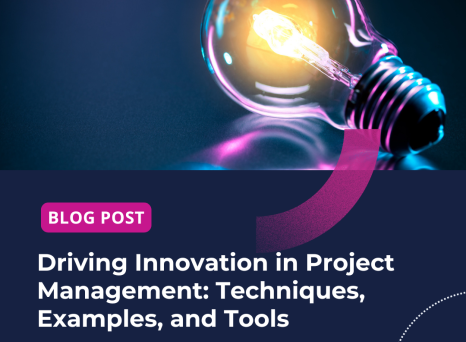Project managers are not necessarily project leaders. Leadership in project management can be challenging. In the last article we learnt about the art and science of leadership for project manager. So, in this article we will explore 10 leadership best practices for project managers to become project leaders.
Manage yourself first
The first step towards project leadership is to manage one self and have an ethical moral compass. To do so project leaders need to have healthy emotional intelligence. The creation of healthy and positive emotions and the management of bad emotions allow the project leader to be proactive and fair, leading to good decision making. High emotional intelligence breeds optimism and self-efficacy among project managers. Thus, ensuring the efficient management of projects and their teams.
As a project leader you need to walk the talk. The behaviors and traits you expect from your team should be exhibited in yourself first.
See the big picture
Project leaders should be able to see things globally and analyze events within the context. They should learn critical thinking skills to analyze the big picture. Project leaders should be able to identify and analyze relationships between events, statements, concepts, and situations. They should make decisions after forming hypotheses and deducing the consequences of data or events. By seeing the big picture first, they can evaluate and determine the consequences of a certain course of action before moving forward.
Know your team
Project leaders should get to know their teams, learn about them, discover what makes them tick and what frustrates them. Learn about their strengths, aspirations and perspectives. The more they know about them the better they will be able to lead them as a project leader. To get to know one's team they don't have to be their friend, just being friendly and fair is enough. They can take them out from time to time to get to know them better.
Seek first to understand and then act
A project leader first tries to understand using his critical thinking skills before taking any actions. A successful project leader gathers information, then carefully analyzes, interprets and understands it before acting. They question what they read and hear. They come to a conclusion by logical deductions. They don't make quick assumptions with baseless facts. They use their critical thinking skills to approach problems, questions and issues
Listen more and observe more
Good project leaders are good listener. In a world bombarded with information and people always speaking, listening is a very valuable leadership skill. By listening properly, one can acquire information, identify and clarify issues, make decisions, and resolve conflict. It is not only important to just listen, but also read between the lines and observe other's behaviors, body language and situations. When a team member feels that the project leader is listening to him he feels important and respected
Empower, rather than manage, your teams
Effective project leaders inspire their team members to transcend their own self-interests for the good of the project or organization. They empower their team by giving them tool, opportunities and guidance rather than subjugating them by commands or orders. Project leaders motivate team members by appealing to them at an individual level and by highlighting their strengths.
Communicate regularly and via different channels
Project leaders communicate regularly, precisely and clearly to build relationships, to assess progress and identify risks and challenges. They use all channels of communication so that all team members are on the same wavelength and everyone has received the message. Project leaders should avoid making baseless assumptions and deduce conclusion by clarifying, asking questions, encouraging members to speak their minds and communicate around the various questions raised.
Develop trust and delegate
Delegation is essential to a project leader's effectiveness. For project leaders to delegate effectively they should inspire trust and in turn trust their team members to get the job done. By listening, observing, understanding and critical thinking project leaders develop intuition to choose the right person to delegate the tasks, make the expectations clear, establish how and when they want progress reports, give appropriate authority and get a commitment to get the job done.
Don't make promises you cannot keep
Adhering to a commitment, doing what you said, respecting a deadline and appearing for an appointment are an important yardstick to measure the value and worth of a project leader. So, think twice before committing to an unrealistic deadline. This will not only make things difficult for your team but also lower your credibility. Hence, a trustworthy project leader doesn't make promises he cannot keep.
Spend few hours every week alone
Last but not the least, a project leader should spend some time alone to understand things and chart out the future. Project management can be messy with its ebb and flow. So, from time to time project leaders should withdraw from the tumult and turmoil of project management to think, put things in perspective and then strategize to tack effective action.

